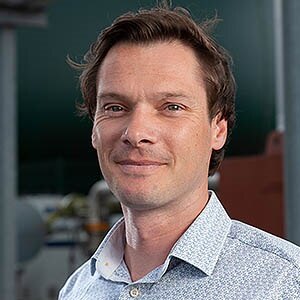
The food and drinks sector could be the leading force in the food waste agenda
The PM’s recent announcement to overhaul the country’s net zero policies will not change the latest figures which tell the stark truth about the impact food waste has on our environment.
Nearly ten million tons of food waste is thrown away every year from UK households, hospitality and food service (HaFS), food manufacturers, retail and wholesale sectors, which equates to around 36 million tons of greenhouse gas emissions.
No matter what new policies come into force over the next few months and years, the reality is that food waste recycling is and must remain a key component in fighting this environmental burden.
The frustration and disappointment of many, if not all, sections of the industry show how close we were and are to making positive change. We are therefore urging colleagues across the food supply chain to not abandon food waste recycling and to continue to have open discussions with the industry to understand what’s involved; visit food waste recycling plants to understand the processes and speak to industry leaders.
With approximately 1.5 million tons (16 percent) coming from food manufacturers, 1.1 million tons (12 percent) from hospitality and food services and 0.3 million tons (three percent) from the food retail industry, the food and drinks sector is well placed to take a leading position in food waste recycling. And the Anaerobic Digestion (AD) industry is ready to support the sector to dispose of food waste in a sustainable way.

Anaerobic digestion and its benefits
AD is the sustainable process of recycling large amounts of food waste and animal waste into green energy and biofertilizer, a nutrient-rich organic material used to fertilize farmland.
Food waste enters a building where it is processed into a liquid porridge, and then pumped into the anaerobic digestion plant. It is here that bacteria feed on the food waste, breaking it down to produce biogas. Biogas is captured and used as a fuel in CHP engines to create electricity or cleaned and sent directly to the gas grid.
The waste is pasteurized to ensure that any pathogens are destroyed and the biofertilizer (digestate) is stored in large lagoons ready to be applied on farmland when the crops require it.
AD is a low-cost process with opportunities to make savings on landfill taxes or energy from waste gate fees. There are around 260,000 HaFS outlets in the UK, with an annual cost of food waste equating to around £10,000 per outlet each year. A five percent reduction in food waste could equate to a sector-level saving of £250 million over two years.
AD is considered top of the hierarchy for food waste above other processes such as composting and it’s a positive step towards being more environmentally responsible. The biogas created from AD is rich in methane and can be converted into renewable energy (heat and electricity) or injected directly into the gas grid to power your gas cooker. Additionally, the process creates an organic high nutrient biofertilizer that farmers can use at a time when fertilizer costs are higher than usual.
Allies in the fight against food waste
The total amount of waste, including food, packaging and other ‘non-food’ waste, produced each year at HaFS outlets is 2.871 million tons, of which only 46 percent is recycled, sent to AD or composted.
Last year, BioteCH4 recycled 557,000 tons of food waste across its sites generating 280,000 MWh of energy. AD is a natural ally to the food and drinks industry.
So, despite the PM’s recent announcement and the questions and turmoil it’s created, we are ready and able to take more food waste when needed. This complex biological process is an opportunity for the food industry to be more environmentally responsible and be a leading force in the food waste agenda.
For a list of sources used in this article, please contact the editor.
Lee Dobinson is Chief Commercial Officer at BioteCH4, the leading Anaerobic Digestion operator in the UK, transforming food waste for good. BioteCH4 has six sites across the country including a highly versatile waste transfer station, with the capacity to handle all volumes of food waste from a variety of sectors. BioteCH4 works closely with regulatory bodies such as DEFRA, the EA, and APHA and with businesses to support them in creating, following, and implementing their own food waste reduction roadmap.
www.biotech4.co.uk